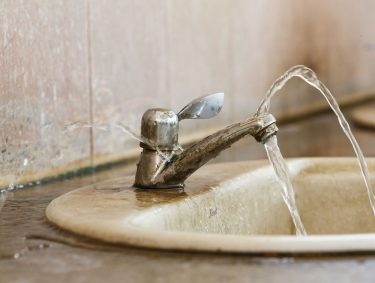What are the most important tests on sanitary hoses ?
Hoses are essential for connecting and distributing water in sanitary installations.
Their fields of application are many and varied.
They can be used in the bathroom, kitchen or WC. To guarantee their safety, quality and durability, hoses are subjected to a series of tests in accordance with the relevant standards and certifications. What are the different types of hoses ? What are the most important tests on sanitary hoses ? We tell you more in this article.
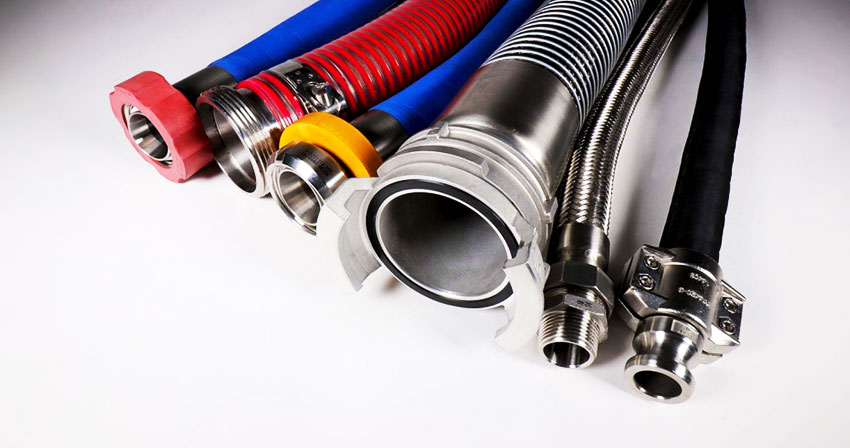
SOMMAIRE
What are the different types of hoses ?
Industry-specific hoses
There is a wide variety of hoses and fittings designed for specific uses in different industries.
To ensure high performance in a fluid system, it is important to choose a hose that is suitable for the industry to which it refers.
Indeed, an inappropriate hose can cause serious damage or be a source of real danger.
Among the different types of hoses available, here is a list of the most commonly used connections and the different technical characteristics according to the applications.
Pharmaceutical or biopharmaceutical applications
The connections used in this sector are designed for easy cleaning, whether in a closed circuit or for complete cleaning by dismantling the system.
Fitting surfaces are also designed to resist corrosion and reduce bacterial growth.
To meet the quality and safety requirements of the medical and pharmaceutical industries, flexible hoses must beUSP Class VI approved.
Class VI controls developed by the USP assess the biocompatibility of plastics and elastomers intended for medical use.
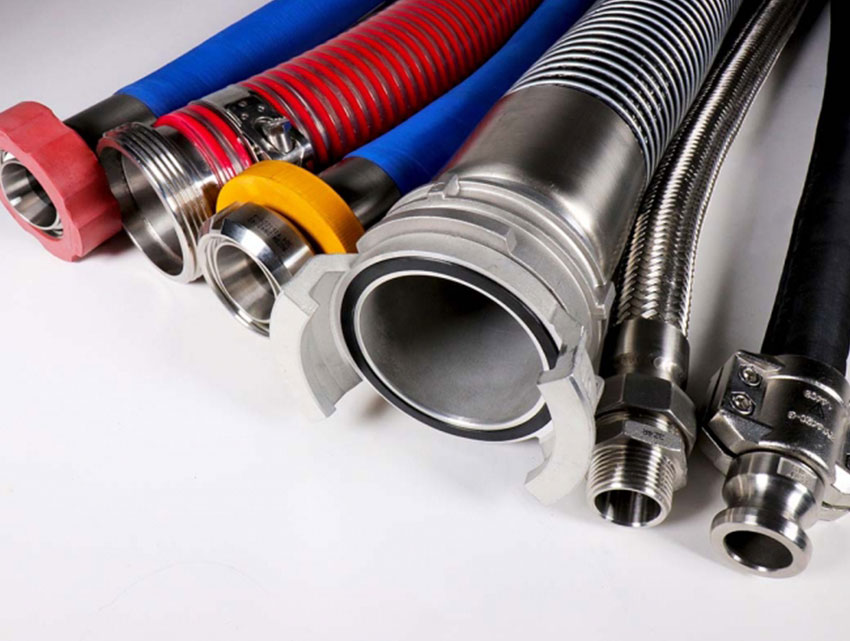
Semiconductors
In the manufacture of electronic products designed with semiconductor materials, cleanliness is one of the priorities.
The metal hoses used are specially designed for sensitive environments and applications requiring extreme cleanliness.
These connections have very fine threads, with a coating designed to resist contamination.
Other industrial applications
For many other industrial applications, hoses must be designed to withstand high pressures.
The pressure rating of some couplings can be as high as 60,000 psi, especially for high pressure couplings.
This sometimes requires the tubes to be prepared beforehand.
Focus on hoses for sanitary fittings
In the sanitary fittings sector, there are 3 main types of hose, each with a specific use.
Supply hoses
Supply hoses are flexible metal or plastic pipes that allow the supply of cold or hot water.
Sanitary hoses are used to connect sanitary equipment (washbasin, WC, tap, bidet, shower, taps) to the water supply network in the house.
Hoses also allow the connection of plumbing and heating installations (water heater, hot water tank, radiator, air conditioning, etc.).
They are installed without welding with male or female threaded connections, or with compression fittings.
For the connection of sanitary installations, there are two types of water supply hoses:
- The tap hose connects to sanitary equipment such as sinks, washbasins, toilets, water heaters and showers.
It can be straight or bent, braided in stainless steel or made of polyester.
Some sanitary hoses have a built-in shut-off valve which can be useful in case of tap failure. - The supply hose: Made of stainless steel or rubber, these supply hoses are generally used as an extension to supply cold water to a washing machine or dishwasher.
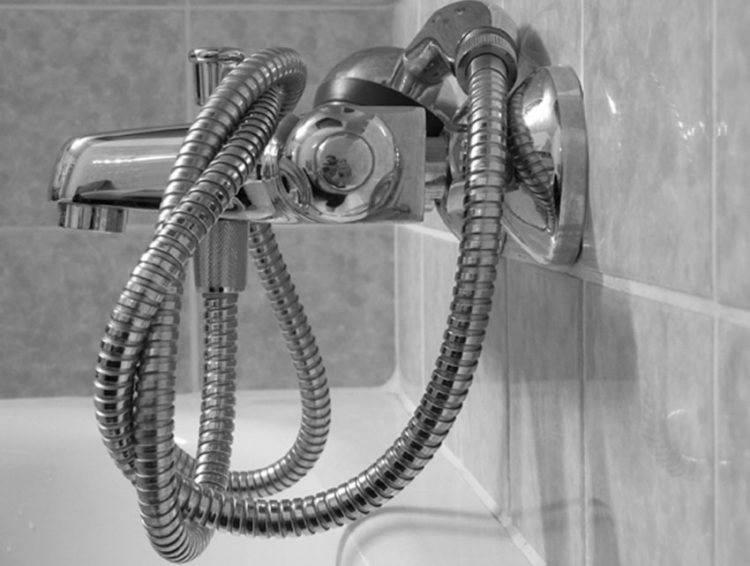
The connections used in this sector are designed for easy cleaning, whether in a closed circuit or for complete cleaning by dismantling the system.
Fitting surfaces are also designed to resist corrosion and reduce bacterial growth.
To meet the quality and safety requirements of the medical and pharmaceutical industries, flexible hoses must beUSP Class VI approved.
Class VI controls developed by the USP assess the biocompatibility of plastics and elastomers intended for medical use.
Shower hose
The shower hose connects the shower mixer – or bathtub mixer – to the shower head .
They come in different sizes and materials.
Shower hoses can be made of nylon, PVC or metal.
In addition to length and diameter, strength is the most important feature of a good shower hose.
Drainage hoses
Not to be confused with supply hoses, drainage hoses are intended for draining waste water.
There are male and female threaded hoses, grey PVC glued hoses and white hoses to replace siphons.
The pressure-resistant hose consists of a rubber hose covered with a braided steel tube.
Do you have a project ? Contact our test bench experts
What are the tests on sanitary fittings hoses?
Tests on supply hoses
Flexible supply hoses play a vital role in sanitary installations, as they secure the water supply from the fittings to the installations (bathroom, kitchen, etc.). To guarantee their reliability, safety and long-term performance, flexible hoses for drinking water installations sold on the market must meet specific criteria and standards. Standards covering sanitary fittings, such as EN200 or EN817, require that connecting hoses comply with the European standard NF EN 13618. The products covered by this standard are flexible hose assemblies:
- With or without braid.
- Lengths between 90 and 2000 mm.
- Nominal diameters (DN) 6, 8, 10, 13, 15, 18, 20 and 25.
To ensure their conformity, flexible hoses for drinking water installations are subject to regular inspections. Manufacturers must carry out laboratory and factory tests onhydraulic test stands. The valve test benches can be used to perform static pressure tests, as well as pressure cycle and water hammer fatigue tests.
The following is a list of the main tests performed on sanitary fittings supply hoses:
- Mechanical resistance of the fitting to tightening torque and bending
- Measurement of the minimum flow rate at 3 bar pressure
- Mechanical strength of the hose when subjected to tensile force
- Tightness at a static internal pressure of 30 bar
- Resistance to fatigue generated by alternating pressure cycles from 5 to 30 bar and resistance to water hammer (pressure cycles from 5 to 50 bar)
- Resistant to temperature cycles from 20 to 90°C
- Frost resistance: bending and pressure resistance after prolonged exposure to -20°C
- Resistance to corrosion
- Flexibility test, corresponding to a tensile test on a hose wound around a small diameter circular mandrel
- Resistance to UV exposure

Tests on shower hoses
Shower hoses for sanitary fittings are regulated by standard NF EN 1113.
It applies to “It applies to “flexible shower hoses, regardless of the material used, intended to equip and complete the sanitary fittings of baths or showers reserved for personal hygiene“.
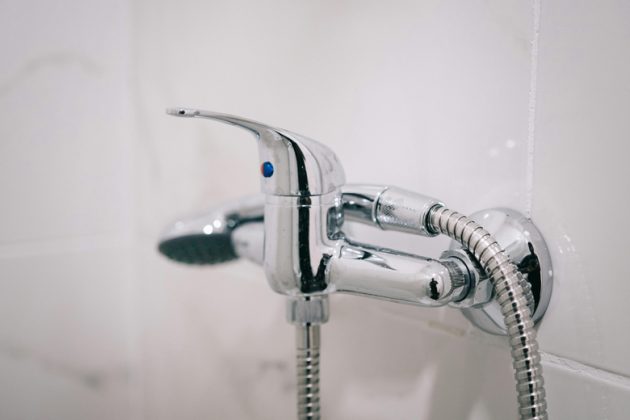
Hydraulic characteristics
- Flow rate test: The principle consists in measuring the flow rate in the shower hoses using cold water (T 30 °C) in order to determine their flow rate class.
Mechanical and sealing characteristics
- Tensile strength: The principle of this test is to subject the hose to a tensile force for a certain period of time.
- Bending strength: This test is intended to check the durability of the hose at the connection ends when it is subjected to bending.
- High temperature pressure resistance: The test consists of subjecting the hose, for a given period of time, to a high pressure and temperature (70°C) for the recommended operating limits.
- Tensile and bending strength test: The test consists of subjecting the hose to the appropriate pressure (2 or 5 bar), using only cold water.
- Thermal shock test: The principle of the test is to check the tightness of the hose under alternating tempera
- Swivel connection: Where a shower hose is fitted with a swivel, the swivel must be able to function correctly and prevent the hose from twisting.
The purpose of this test is to check the function of the swivel joint.
The endurance test benches are used to test the service life of taps, mixers, reversing valves, mechanical mixers and thermostatic mixers according to the relevant standards.
The tests carried out on test benches comply with standards and certifications.
Issued by AFNOR Certification, the NF certification attests that a product complies with the standards and any additional technical specifications required by the market.
It guarantees the quality and safety of certified products and services.
Discover other articles and tips

What methods are used to test pipes in the building industry?
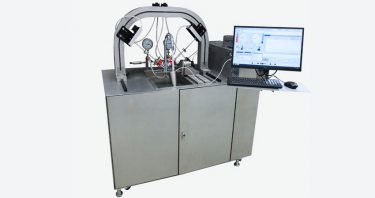
Who are the test bench users ?
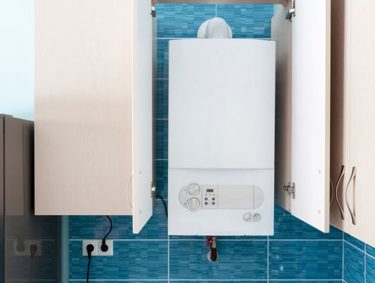
What are the main types of water heaters ?
